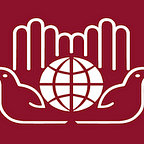Grand Challenges for Development: Spurring Innovative Collaborations
During this year’s Design for Humanity Summit, one core humanitarian value was present like no other — innovative collaboration is necessary. Lorin Kavanaugh-ulku, the senior advisor for Open Innovation Competitions at USAID, was one of the design dialogue speakers who stressed the necessity for all sectors to collaborate in an effort to create different and sustainable ways for delivering aid.
Grand Challenges for Development fosters innovation by uncovering and testing new development (Humanitarian Hub). As the pioneer of Grand Challenge, Lorin Kavanaugh-ulku manages a portfolio of innovation grants. Specifically, the awards are dedicated to creators who continue to transform the works of humanitarian aid. At the 2019 Design for Humanity Summit, Kavanaugh-Ulku addressed the state of today’s innovative quarter. “Less than 1% of funding is committed to innovation” (Youtube: Design 4 Humanity Summit). In today’s world, this might seem shocking considering our experimental mannerism. Technology has advanced to unimaginable heights because of our interest in testing and acquiring. Unfortunately, in the humanitarian aid sector, innovation is not one of the main focuses, yet.
The United States Agency for International Development (USAID) wants to launch humanitarian aid into the future, with the Grand Challenges for Development. Through this program, USAID collaborates with public and private enterprises to create solutions for developmental problems. The Grand Challenges are different than many other conventional humanitarian aid programs. This program welcomes businesses, researchers, and scientists in an untraditional cross-section (USAID). The collaboration varies from partnerships to prizes or grants. No matter the collaborative mechanism, the challenge is always successful in discovering ways to deliver aid.
One of the ten Grand Challenges is All Children Reading. The program is in partnership with World Vision, a humanitarian aid organization based in the United Kingdom, and the Australian government. Together, they have invested in “sourcing and supporting” technology to improve reading for marginalized children. Six hundred seventeen thousand children in developing countries have received help from the program. The USAID partnership opened up challenges for app developers and website designers to create STEM-based reading materials for early-leveled children. With all the combined challenges completed, the USAID has distributed a total of 1.3 million learning materials. This program has and will continue to slowly eradicate the 1 trillion dollar deficit emplaced on the global economy because of illiteracy (All Children Reading).
In another challenge: Scaling Off-Grid Energy, the USAID closely works with the United Kingdom Department for International Development and the Shell Foundation, a U.K. charity. They are in-works to provide “modern, affordable, and clean electricity,” to people in sub-Saharan Africa. The African Development Bank, a multilateral development finance institution contributing to African economic and social development, works in-close alignment with the program. Microsoft has also co-invested in new projects to create electricity in Africa. In unison, all the entities involved have promised to spur innovation to fill in the technological gaps for off-grid electricity in Africa (Scaling Off-Grid).
Spurring innovation through collaboration is what Lorin Kavanaugh-ulku is currently involved in with the U.S. Development Global Lab at USAID. Since 2011, her team has made available more than $508 million in grants and assistance to fund more than 450 innovations in 60 countries (USAID). Her team’s work is unconventionally successful in a situation where not many humanitarians are open to crossing paths with private businesses.
While discussing her work at the Design for Humanity Summit II, she informed her fellow peers that she is dedicated to making the program more “permeable” to “non-traditional actors” (Youtube: Design 4 Humanity Summit). Essentially, allowing private enterprises to work with USAID to solve innovation problems and create solutions in conflict-zones. Grand Challenges for Development is unconventionally breaking barriers and stressing the importance of experimenting in humanitarian work. Emphasizing innovation without experimentation, as some organizations do, is counterproductive. The Innovation Lab at USAID is productively providing humanitarian aid through scientific and interdisciplinary experimentation. All ten Grand Challenges have shown success in delivering multiform humanitarian assistance to developing countries; and, all because of the program’s willingness to redesign and change the way of humanitarian aid.
Written By Leonit Dedushaj, Marketing and Communications Intern, Summer 2019
About the IIHA
The Institute of International Humanitarian Affairs (IIHA) prepares current and future aid workers with the knowledge and skills needed to respond effectively in times of humanitarian crisis and disaster. Our courses are borne of an interdisciplinary curriculum that combines academic theory with the practical experience of seasoned humanitarian professionals. The IIHA also publishes on a wide range of humanitarian topics and regularly hosts a number of events in the New York area, including the annual Humanitarian Blockchain Summit and Design for Humanity Summit.
For media inquiries, please contact: Camille Giacovas, Communications & Research Officer, IIHA cgiacovas@fordham.edu
